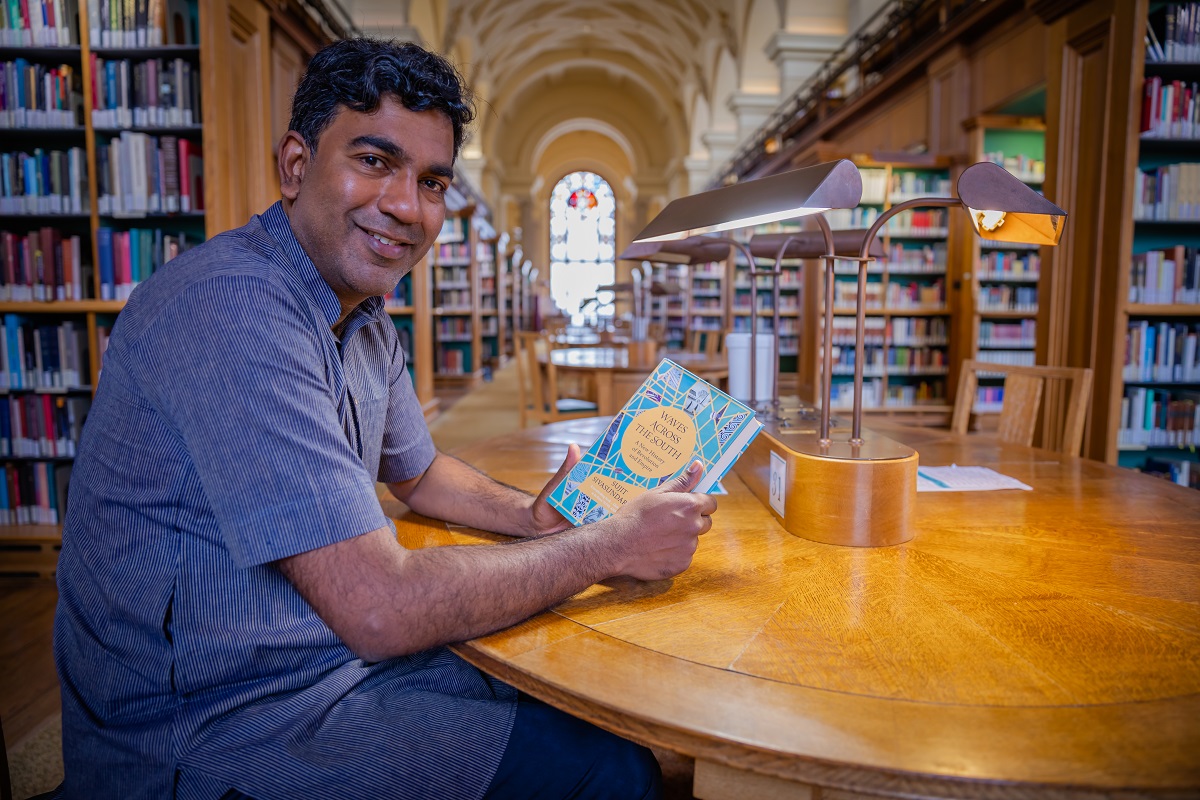Gonville & Caius College Fellow Professor Sujit Sivasundaram has been awarded a European Research Council Advanced Grant for the study of the global South city, focused on the long history of Colombo, Sri Lanka, from the ninth century to the present.
Colombo’s position at the centre of the Indian Ocean makes it ideally placed for an analysis of the contours of globalisation and empire, given its multiple settlements and colonisations.
Theorising the present predicament that faces the global South city, as it sees demographic expansion and the climate emergency, is an important scholarly challenge, which Professor Sivasundaram is keen to address.

Credit: Lloyd Mann
Sujit says: “I always carry Sri Lanka with me and especially its staggering challenges. So I'm just so happy to have the opportunity to use my privileged position to make a small but intellectually serious contribution to the country's future.
“This award arrives at an interesting moment: one year or so after the aragalaya/porattam, to use the names both in Sinhala and Tamil for the political movement that rocked the island as a demonstration of democratic opposition to authoritarianism and against economic inequality in 2022.
“This year, 2023, it is also exactly and only 75 years since the island attained independence on 4 February 1948. The city of Colombo, the subject of this research project, experienced centuries of colonial rule by the Portuguese, Dutch and British and is now central to China's Belt and Road Initiative.
“I underline how vital these European grants are for risky thinking not only in the sciences but also in the humanities.
“For me it marks a new phase of research as I work collaboratively and learn about techniques in digital humanities and art and visual studies and engage with urban history.”
This is the second year a Caius Fellow has been successful in the competition for an Advanced Grant; this year the competition saw in excess of 1600 applications. Last year, Professor Ivan Smith was awarded one.
Main picture: Colombo (S. Sivasundaram)

